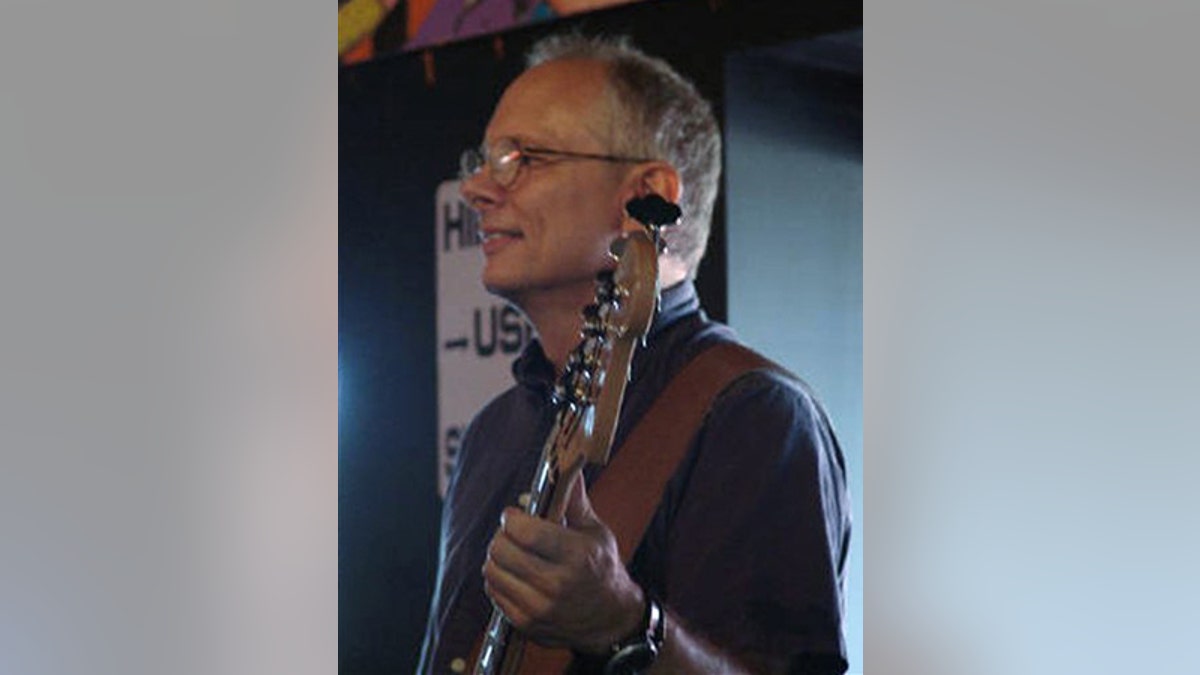
Joseph Stack (AP/Courtesy of Pam Parker)
GEORGETOWN, Texas – After 9/11, cockpit doors were sealed, air marshals were added and airport searches became more aggressive, all to make sure an airliner could never again be used as a weapon. Yet little has been done to guard against attacks with smaller planes.
That point was driven home with chilling force on Thursday when a Texas man with a grudge against the IRS crashed his single-engine plane into an office building in a fiery suicide attack. One person inside the building was also killed.
SLIDESHOW: Small Plane Crashes Into Austin Office Building
"It's a big gap," said R. William Johnstone, an aviation security consultant and former staff member of the commission that investigated the Sept. 11 attacks. "It wouldn't take much, even a minor incident involving two simultaneously attacking planes, to inflict enough damage to set off alarm bells and do some serious harm to the economy and national psyche."
The suburban Georgetown Municipal Airport that pilot Joe Stack entered hours before his airborne attack in nearby Austin had the casual atmosphere of a sleepy parking garage. Pilots were not subject to baggage checks, metal detector scans or pat-downs. And they are usually not required to file flight plans.
"How are they going to stop it? This guy had a hangar, and he had access to the airport," said Beth Ann Jenkins, president of Pilot's Choice, a flight school near where Stack kept his Piper.
Travis McLain, manager of the airport, said: "I don't know of a rule or regulation or safety precaution that could have prevented what happened yesterday."
The easy access and lack of security are the result of years of debate — and stalemate — over how much of a threat small aircraft pose as terror weapons and how they could be regulated without stifling commerce and pilot freedom.
While the airlines quickly accepted tougher security after Sept. 11, the general aviation industry, which includes everything from privately owned propeller-driven planes to large corporate jets, have aggressively fought new measures.
The proposed rules would require that operators of medium and large general-aviation aircraft demonstrate that flight crews have undergone a criminal background check. They would also be required to verify passengers are not on the no-fly lists already used by large airlines.
Private pilots fly approximately 200,000 small and medium-size planes in the U.S., using 19,000 airports, most of them small. The planes' owners insist the aircraft have nothing in common with airliners but the sky.
"I don't see a gaping security hole here," said Tom Walsh, an aviation security consultant. "In terms of aviation security, there are much bigger fish to fry than worrying small aircraft."
He said most would-be terrorists would draw the same conclusion — that tiny aircraft don't pack a big enough punch.
Planes like Stack's weigh justck or disable parked planes to prevent people bent on mayhem from stealing them.
Tougher restrictions were debated after Sept. 11 and after a few incidents in which pilots deliberately crashed small planes into buildings.
In 1994, a Maryland truck driver with a history of instability crashed a plane on the south lawn of the White House. In 2002, a 15-year-old boy stole a plane and crashed it into a downtown skyscraper in Tampa, Florida. Pilots of small planes have also frequently flown into the secure airspace over the key government buildings in Washington.
The general aviation lobby has exerted its considerable clout to fend off new measures. The Aircraft Owners and Pilots Association, or AOPA, National Business Aviation Association, National Air Transportation Association and General Aviation Manufacturers Association spent $6 million lobbying in Washington last year.
"There was no way to impose one overall security structure that would fit every general aviation airport's needs," said AOPA spokesman Chris Dancy. The association has about 400,000 members.
At the Georgetown airport, where 240 small aircraft are based, manager McLain said she hopes Stack's suicidal attack doesn't lead to an overreaction.
"I would hope that common sense and cooler heads would prevail," McLain said.
